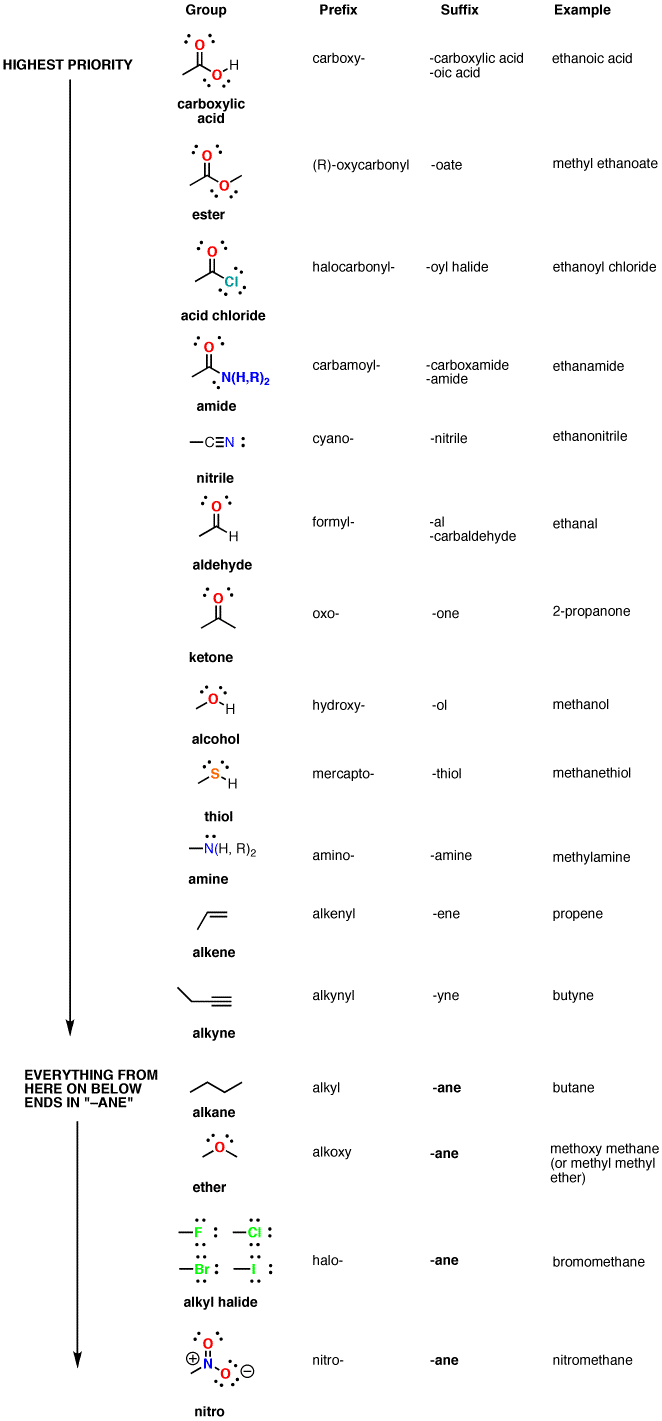The order of precedence for functional groups I have so far is:
- carboxylic acid
- ester
- amide
- aldehyde
- ketone
- alcohol
- amine
- multiple bonds
- ether
- organic halide
I'm pretty confident that from 1 to 7, I have the order of precedence right. But from 8 onwards, I'm not too sure. Could someone help verify that the list I've got is right or help me correct it?

